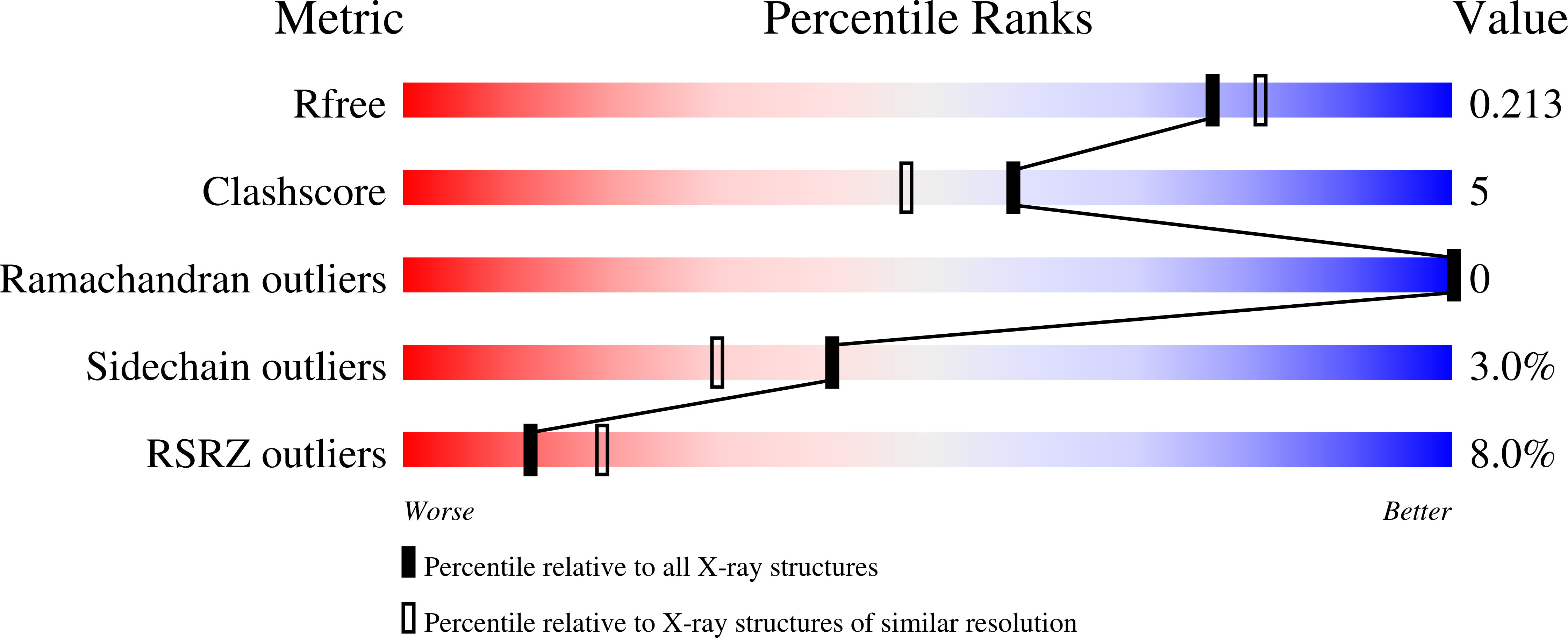Structural determinants in streptococcal unsaturated glucuronyl hydrolase for recognition of glycosaminoglycan sulfate groups
Nakamichi, Y., Maruyama, Y., Mikami, B., Hashimoto, W., Murata, K.(2011) J Biol Chem 286: 6262-6271
- PubMed: 21147778
- DOI: https://doi.org/10.1074/jbc.M110.182618
- Primary Citation of Related Structures:
3ANI, 3ANJ, 3ANK - PubMed Abstract:
Pathogenic Streptococcus agalactiae produces polysaccharide lyases and unsaturated glucuronyl hydrolase (UGL), which are prerequisite for complete degradation of mammalian extracellular matrices, including glycosaminoglycans such as chondroitin and hyaluronan. Unlike the Bacillus enzyme, streptococcal UGLs prefer sulfated glycosaminoglycans. Here, we show the loop flexibility for substrate binding and structural determinants for recognition of glycosaminoglycan sulfate groups in S. agalactiae UGL (SagUGL). UGL also degraded unsaturated heparin disaccharides; this indicates that the enzyme released unsaturated iduronic and glucuronic acids from substrates. We determined the crystal structures of SagUGL wild-type enzyme and both substrate-free and substrate-bound D175N mutants by x-ray crystallography and noted that the loop over the active cleft exhibits flexible motion for substrate binding. Several residues in the active cleft bind to the substrate, unsaturated chondroitin disaccharide with a sulfate group at the C-6 position of GalNAc residue. The sulfate group is hydrogen-bonded to Ser-365 and Ser-368 and close to Lys-370. As compared with wild-type enzyme, S365H, S368G, and K370I mutants exhibited higher Michaelis constants toward the substrate. The conversion of SagUGL to Bacillus sp. GL1 UGL-like enzyme via site-directed mutagenesis demonstrated that Ser-365 and Lys-370 are essential for direct binding and for electrostatic interaction, respectively, for recognition of the sulfate group by SagUGL. Molecular conversion was also achieved in SagUGL Arg-236 with an affinity for the sulfate group at the C-4 position of the GalNAc residue. These residues binding to sulfate groups are frequently conserved in pathogenic bacterial UGLs, suggesting that the motif "R-//-SXX(S)XK" (where the hyphen and slash marks in the motif indicate the presence of over 100 residues in the enzyme and parentheses indicate that Ser-368 makes little contribution to enzyme activity) is crucial for degradation of sulfated glycosaminoglycans.
Organizational Affiliation:
Laboratories of Basic and Applied Molecular Biotechnology, Graduate School of Agriculture, Kyoto University, Uji, Kyoto 611-0011, Japan.














